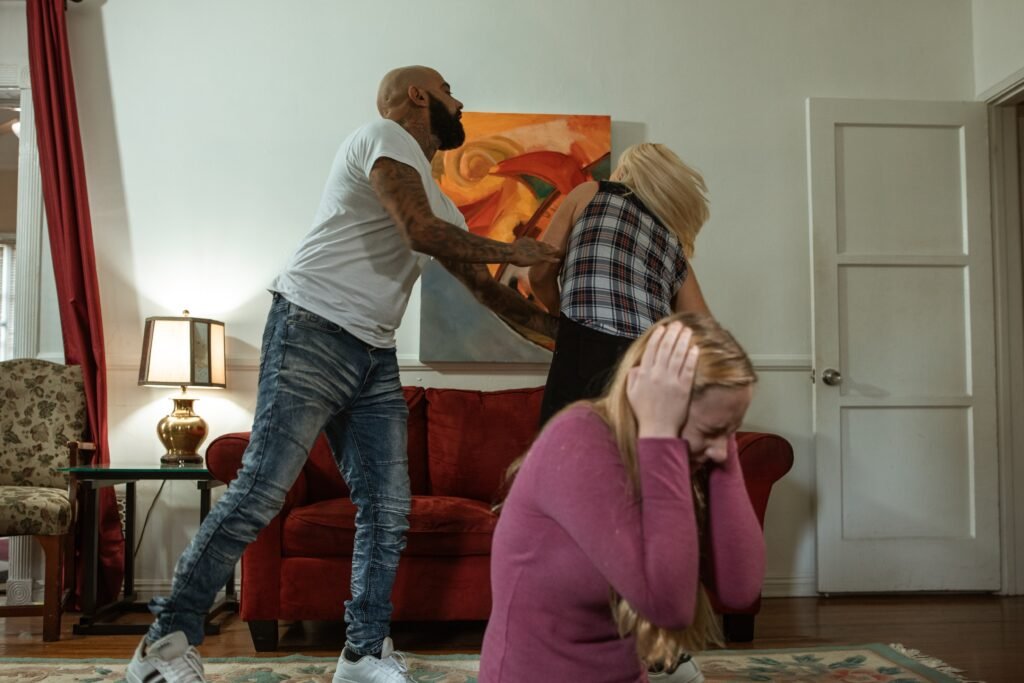Living with CPTSD can be a lonely and isolating experience. Sometimes you will feel as though no one truly understands you, and even lose trust in the people and world around you. I know what it’s like to feel trapped inside your own mind, feeling broken, anxious and confused about what is happening to you. That’s why I’ve started this CPTSD online support group, to help people struggling with CPTSD to learn about the symptoms, connect with other people who share these struggles and find techniques to support recovery.
What is CPTSD?
CPTSD stands for Complex Post-traumatic Stress Disorder. The disorder was first recognised as a mental health condition by American Psychiatrist, Judith Herman, in 1992. At that time, PTSD (Post-traumatic Stress Disorder), was only attributed to survivors of extreme and death defying circumstances such as victims of war, veterans, survivors of terrorism, physical or sexual abuse, extreme violence or accidents.
However, studies found that people who had been exposed to prolonged abuse, neglect, violence or other harmful behaviours during childhood, often experience similar symptoms of PTSD.
The term Complex-PTSD, refers to the complex nature of how these symptoms develop over time, due to a combinations of traumatising experiences in early life. CPTSD, often occurs due to regular exposure to different traumatising factors over a long period of time during early life.

What Situations and Events Can Lead to CPTSD?
PTSD (Post-traumatic Stress Disorder), is generally caused by exposure to an extreme event which overwhelms a person’s nervous system’s capacity to self-regulate. Things like:
- Car crashes or other life-threatening accidents
- Sexual violence
- War
- Losing a loved one
- Being attacked or held hostage
- Natural disasters
- Severe bullying
- Or even exposure to someone else experiencing any of these or other life threatening situations
You can see a more comprehensive list on the Mind website here.
Complex PTSD, however, often develops a as a result of exposure to a number of these types of events over time, but it can also include:
- Childhood abuse or neglect
- Losing a parent due to abandonment, incarceration, death or suicide
- Having one or more parents who are addicted to alcohol or drugs
- Being subject to or witnessing ongoing domestic violence
- Frequent exposure to inappropriate sexual behaviour, or being forced into acts of sexual service
- Being removed from the family home or placed into care services
- Living in squalid conditions, poverty or homelessness
- Prolonged bullying, either by family members, peers or other adults
- Imprisonment, isolation or torture of any kind
Some Additional Factors:
According to the NHS, you are more likely to develop CPTSD if:
- You experienced trauma at a young age
- Were harmed by someone close to you who you trusted
- You were unable to escape the trauma
Some Symptoms of CPTSD
People who suffer from CPTSD often experience some or all of the following symptoms. You may also experience other symptoms, but here are some common ones that many people living with CPTSD will relate to:
- Feeling distant or cut off from other people
- Trouble building and maintaining healthy relationships
- Never feeling safe with or close to other people
- Feeling hopeless, different, empty or unloveable
- Self-isolation or avoiding certain relationships, situations or events
- Depersonalisation or a feeling of not being “real”, at times
- Seeing or believing yourself to be defective, bad or evil
- Hypersensitivity to rejection, confrontation or feedback
- Defensiveness, repressed anger or rage outbursts
- Feeling like a victim, forsaken or that things are generally against you
- Difficulty managing or identifying your own emotions
- Anxiety, panic issues, hypervigilance, depression or frequent mood swings
- Insomnia, frequent nightmares or intermittent sleep disturbances
- Emotional flash-backs, feeling afraid, shameful or out of control for no apparent reason
- Eating disorders, obsessive weight control or comfort eating
- Struggling to do basic self-care like planning meals, taking care of hygiene or finances
- Physical pain, tension or chronic illness
- Self-harm, risky sexual behaviour or extreme self-neglect
- Addictions to substances, alcohol, sex and love, gambling, shopping etc.
- Suicidal thoughts or ideation
These are just some of the symptoms that you might experience if you have CPTSD. You can find out more on the Trauma Dissociation website
Why Join this CPTSD Online Support Group
If you feel that you may have some of the symptoms above, you might benefit from joining this CPTSD online support group.
Each rotation lasts 6 weeks, and every week we will cover a different topic to focus on around CPTSD, learning about symptoms, triggers and how to manage them.
You’ll meet other people who struggle just as you do, learn ways to improve your self-compassion and acceptance, develop healthier communication skills and take part in therapeutic activities to help regulate your nervous system.
There is a maximum of 10 people per group so that you can receive all the support you need. You will have access to me as your guide during group sessions, and if you need any additional support I’ll be there to help. You can sign up for further oner to one support at a discounted rate and you will have access to resources and email support throughout your time on the course.
In addition to this, you’ll have the option to join our Facebook group, where you’ll be able to connect further with other CPTSD survivors, get support with real life issues in real time and find shared resources.
How Much Does it Cost?
Each 6 week rotation of the CPTSD online support group has a one off payment of £125, making this a cost effective way to access therapeutic support online. You will also have the option to pay in two monthly instalments of £65, meaning you pay slightly more (additional £5), due to the booking fee.
Each weekly session lasts 1.5 hours and will take place over Zoom. You can join from anywhere in the world using a computer, tablet or smart phone.
Discounted Places for Low Incomes
There will be a limited number of places available for people on benefits or low incomes. If you feel you qualify for this, please get in touch via the contact form below.

What To Do Next if You Would Like to Join the CPTSD Online Support Group
If you’re interested in joining the next CPTSD online support group, you can click the button below which will take you to the bookings page. If you would like to learn more about this or if you have any questions, you can email me via the details on my Contact page.
See Upcoming Session Dates and Book Now
Whatever you do, don’t suffer in silence. Connection is one of the best ways to heal from CPTSD, and here you’ll find a safe place where you won’t be judged. Come and join us on this journey to recovery, learn ways to support yourself, make new friends and begin to thrive as a survivor.
I look forward to hearing from you!

